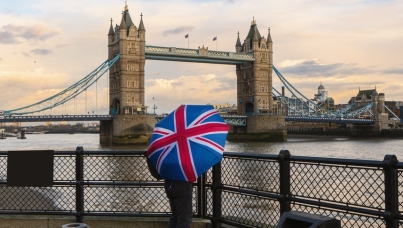The Ipsos Almanac 2020
Check out our latest year in review, visit
Welcome to this year’s Almanac and review of the year from Ipsos! Even before we went into the pandemic, 45% of the British public expected their children to be poorer than them, and millions have already seen massive financial consequences, both for individuals and the country because of the pandemic.
In January, I had thought 2020 was going to be the year that climate change finally broke through as a public issue, with more people searching for Greta Thunberg online than Beyoncé, and record concern globally. The public still want any rebuild of the economy to involve a green recovery, but the big heroes of 2020 have been the staff of the NHS and care homes, the scientists working on the vaccines, and the key workers who have kept us fed and delivered parcels while the virus did its thing. Our latest Veracity Index shows more people trust delivery workers to tell the truth than the police.
The most effective government message this year was “to protect the NHS” and over seven out of ten people say they have every confidence in it as we go through this winter of COVID-19. Next year it faces two massive challenges: getting us all vaccinated and the backlog of operations and treatments caused by the virus. While the majority of us say we’ll take it, vaccine hesitancy is rising on both sides of the Atlantic.
The public approve of surging public spending to cope with the impacts of the virus, now at wartime levels, and most people want to see more. They don’t necessarily want to pay more taxes for it but borrowing costs have fallen so dramatically they may not have to immediately. Public services have had to perform amazing pivots in 2020, as have businesses. Concern about crime has fallen to the lowest level Ipsos has ever recorded since 1974, and this autumn, concern about inequality and poverty overtook our worries about the NHS for the first time ever.
Our behaviours changed massively. Shops and restaurants shut – many permanently – and we shopped more online and watched far more TV and streaming services than ever. We became addicted to news – and comedy to take our minds off the news.
But at the same time, although our behaviours have changed massively in 2020, our fundamental values haven’t. Global concern about climate change has gone on rising. Our expectations of brands to do the ‘right’ thing have only strengthened.
Sixty-eight per cent of people told us they want bosses to speak out on social and political issues, and the proportion saying they want to buy from brands that reflect their values grew from 56% to 72%. Both in business, and in the country as a whole, the lockdowns and their consequences seem to have focused us on inequality. People don’t want to go back to exactly the same country that we were before.
We saw the highest ever level of concern about race relations in Britain this summer, in the aftermath of the murder of George Floyd in America and the Black Lives Matter protests here that followed it. This focused British people on inequalities here: 67% of businesses now say they will be doing more to boost inclusion and diversity in 2021.
In politics, Keir Starmer had some of the highest satisfaction ratings for any opposition leader we have ever seen, and he’s managed to gradually drag the Labour Party to be seen as less ‘extreme’, and more ‘fit to govern’, but not to any commanding lead in the polls. In fact, the most popular politician in Britain in 2020 was Nicola Sturgeon, with 74% of people in Scotland saying she was doing a good job fighting the pandemic – and 56% of Scots saying they would vote to leave the UK. This is despite the fact that actually what’s happened with the virus in Scotland has been quite similar to what’s going on in England, but shows the post-Brexit divide in politics between Scotland and England, and how the Scots see Brexit and indeed Boris Johnson.
The Prime Minister has had a dramatic year with a new baby and a spell in hospital with the virus – let alone the challenges of steering the country through a pandemic. He has at least three things to console him. His 80-seat majority, the fact that despite his problems, the Conservative Party still has around 40% of voters supporting it, and strong support for government measures to contain the virus – irrespective of the occasional dissent within his own party.
Overall 2020 shows the British still have stoicism and grim determination to do what is necessary to get back to normalcy. Despite some protests, only 15% think government measures have been too strict. These may include the 7% who believe COVID-19 is just made up – and the 13% who believe it’s a conspiracy to force everybody to have vaccinations – which just shows that some people will believe anything.
Overall, as we finish 2020, let’s look at how Britain has held together despite the dramatic effects of the pandemic. Three-quarters of the British still say, despite everything – that they’re very or fairly happy – one of the highest scores in the world.
Maybe we should just look forward to 2021 with a bit of a smile on our faces – nothing can be worse than 2020, can it?
Merry Christmas and best wishes to you and your family for a better New Year.
Ben Page
Chief Executive, Ipsos
Tweet me: @BenatIpsosMORI
Share any articles of interest on social media using the hashtag #IpsosAlmanac






